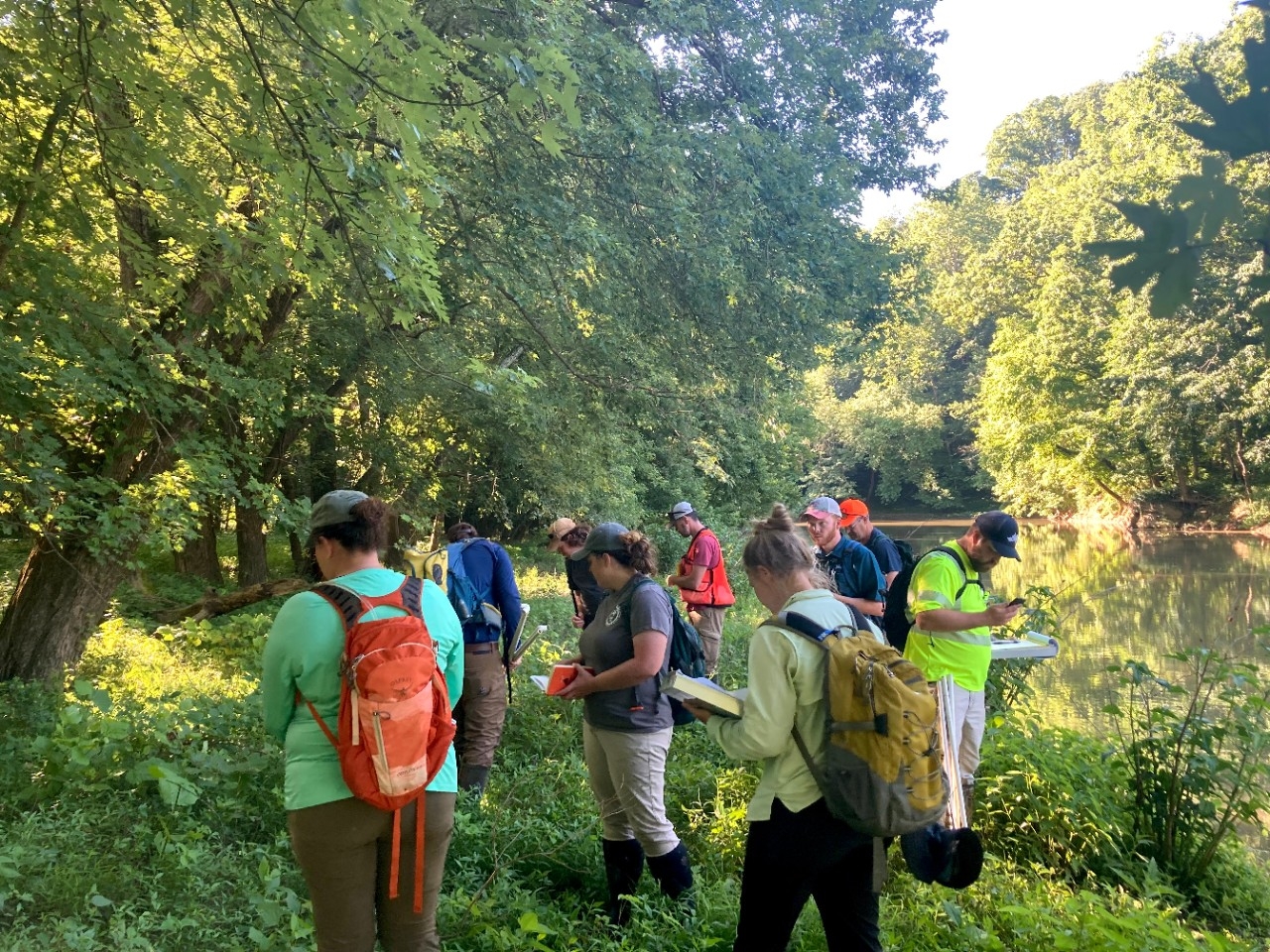

After completing the Wetlands Management micro-credential, students will have learned:
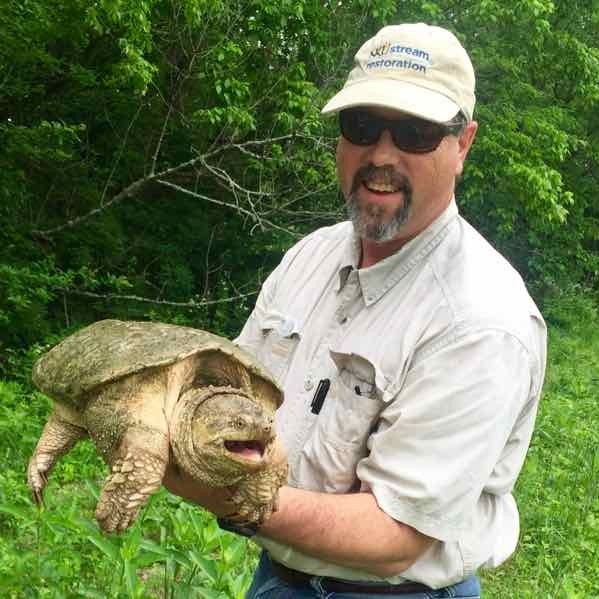
Director, NKU REFS
Bio
Dr. Durtsche is the Director of the NKU Research and Education Field Station, and is a Professor in the Department of Biological Sciences. He is a physiological ecologist and herpetologist, and has been a faculty member at NKU for the past 25 years. He teaches courses in Herpetology, Vertebrate Zoology, Animal Physiological Ecology, Tropical Ecology, and Northern Temperate Ecology, all of which have a field component where students learn from studying animals in their natural habitats. He also teaches Biometry, a biostatistics course where students learn to analyze data collected in the field or the lab with different industry-level
statistics programs. His research interests focus on understanding how ectotherms (amphibians, reptiles, and fish) respond (physiologically) to varying ecological conditions, both biotic (invasive species) and abiotic (climate change). All of his research activities involve undergraduates collaborators, and current research topics include: 1) monitoring the effects of invasive plant control on native amphibian and reptile populations, 2) testing potential climate change impacts on the metabolism of Kentucky stream fishes, 3) evaluating aquatic pollution impacts on larval salamander metabolism, and 4) developing digital
imaging tools to determine the nutritional quality of macroinvertebrates for use by amphibians and fish in aquatic ecosystem models.

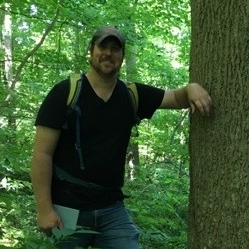
Sr. Ecologist-Botanist, Plum Hill Ecological Services
Bio
Jacob is the owner and Senior Ecologist-Botanist for Plum Hill Ecological Services, an ecological consulting firm and native plant farm located in Northern Kentucky. Jacob is an alumni of Northern Kentucky University and has over 16 years of experience managing projects involving applied ecology and natural areas. Jacob’s expertise include botanical inventories, ecological site assessments, vegetation monitoring, vegetation community mapping, floristic quality mapping, invasive species mapping, invasive species management, habitat restoration planning, wetland delineations, and wetland mitigation banking. Jacob is highly experienced in preparing habitat management plans, technical writing reports, and has conducted numerous vegetation monitoring techniques and protocols for wetland and stream mitigation projects.
Jacob has extensive experience in native plant propagation and habitat restoration practices. He currently is the Project Director of Red Stone Farm Wetland Mitigation Bank and provides applied ecological services for organizations in Northern Kentucky and the Cincinnati region such as NKU’s Center for Environmental Restoration, Boone County Parks, The Boone Conservancy, Campbell County Conservation District, and The Hillside Trust. Additionally, Jacob has conducted numerous wetland delineations for private companies.

Registration for 2025 micro-credentials is now closed. Check back later for the 2026 course offerings.

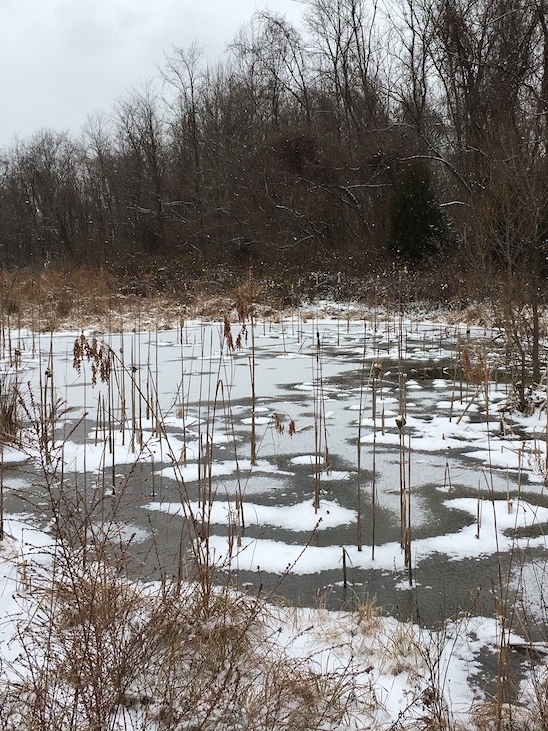
Plant identification tied into wetland assessment using ORAM and KYRAM protocols under winter conditions when plants are dormant can increase your ability to evaluate the quality of wetlands or delineate wetlands during the winter months.
Full Course Title: Winter ID of Wetland Plants and Winter Assessments of Forested and Emergent Wetlands
Mission: This training will aid students in learning winter identification of common wetland trees, shrubs, forbs, and graminoids in the Army Corps of Engineers Eastern Mountains and Piedmont (EMP) and Midwest Region. This course will aid professionals in completing wetland delineations and/or wetland assessments during the winter months. In addition to winter ID of wetland plants, students will also gain knowledge of completing ecological assessments to forested and emergent wetlands during the winter months with leaf off.
Focusing on winter characteristics such as winter colors, leaf buds, twigs, or leftover seed aids to ID plant species. Students will also conduct ORAM and KY-RAM wetland assessments.
Timeline: 3-day course (25 hrs). The course will be 1 day in the classroom and 2 days in field training. The Course will require travel to diverse wetland sites in addition to the St. Anne’s field station.
Materials: Provided
Objectives:
Reminder: Dress appropriately for the weather.
Duration: 3 days (25 hours)
Dates: February 12-14, 2025
Registration Rates:
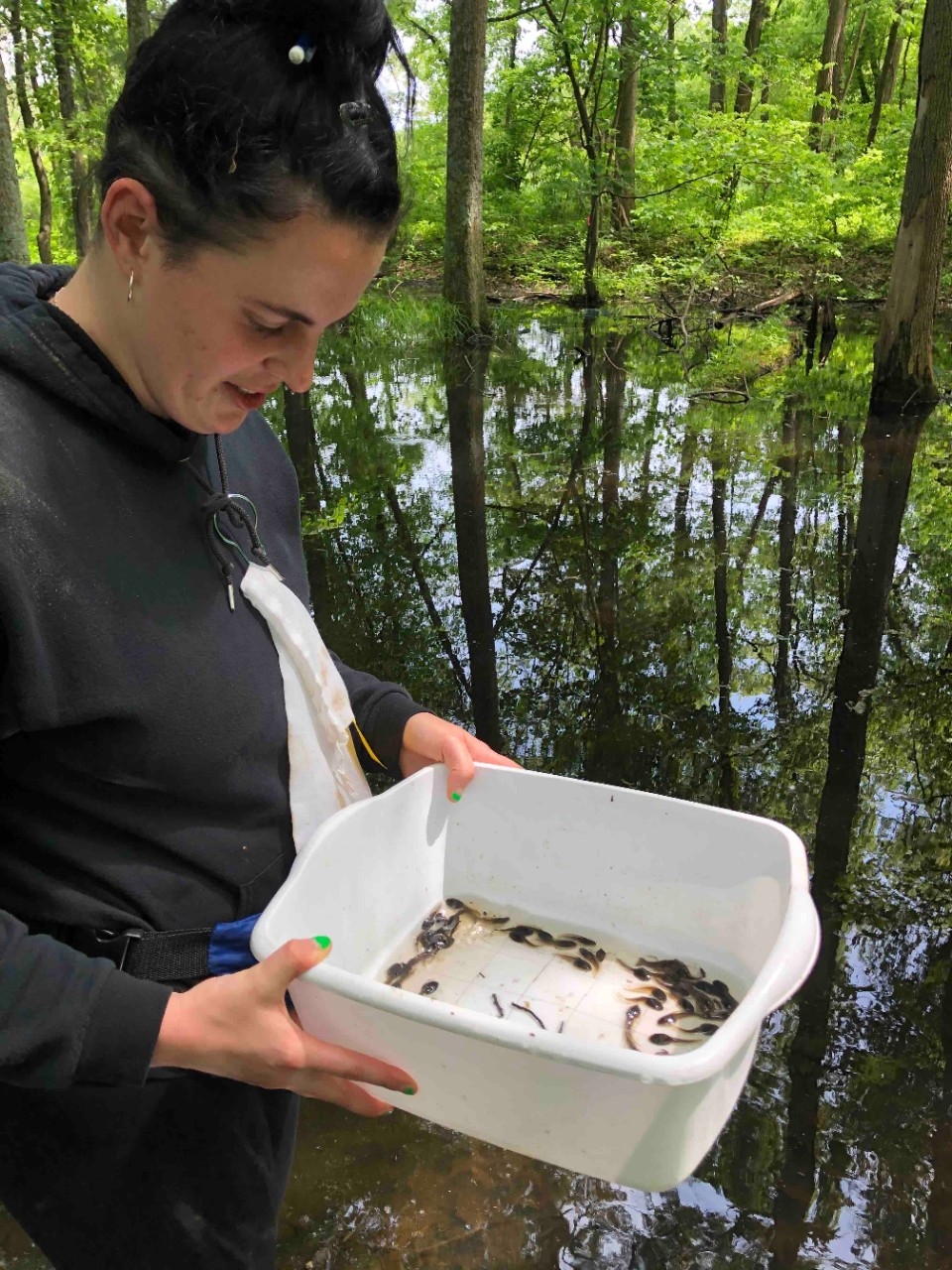
Learn both long term trap station and rapid assessment (AmphIBI) methods of monitoring amphibians, - learn amphibian species identification from live and preserved specimens and from anuran vocalization, - learn to assess anuran species reproductive phenology using an audiospectrogram program with digital sound files.
Full Course Title: Wetland Amphibians Assessment
Mission: Amphibians are active users of terrestrial and aquatic habitats in wetlands, and with their moist, highly permeable thin skin, their non-shelled gelatinous eggs, and their limited dispersal abilities and limited home ranges, these animals are indicators of ecosystem health in wetlands. This course will train participants in the identification of amphibians that use wetlands and the natural history of how these species use these habitats. Training will also occur in active and passive methods of both rapid and long-term assessment of the occurrence and abundance of these species. Assessment results will then be applied to various computational analyses so that the wetland can be quantified in its environmental health.
Timeline: 3-day course (25 hrs). The course will be a mix of classroom and field training on all three days. The course will primarily focus on the St. Anne Wetland sites and the field station, but may include travel to other nearby wetland sites.
Materials: Provided
Objectives:
Reminder: Dress appropriately for the weather and mosquitoes. Bring waders if you have them; if not, they will be provided.
Duration: 3 days (25 hours)
Dates: May 14-16, 2025
Registration Rates:
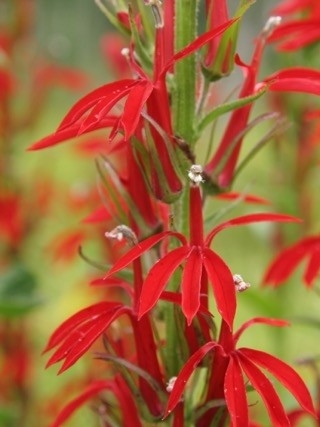
Learn species identification from live and preserved specimens of wetland plants. Accurate plant identifications are required for wetland determinations, wetland quality assessments, and project monitoring.
Full Course Title: Common Wetland Plants Identification
Mission: This training will encompass why learning wetland plants is important for those involved in the wetland profession and associated fields. Wetland plant ID is a necessary step to learn to correctly identify wetlands. Many wetland management and assessment methods are dependent on identifying wetland plant species. The course is focused on the common wetland plant species found in the ACOE Eastern Mountains and Piedmont (EMP) Region, as well as the Midwest.
Timeline: 3-day course (25 hrs). The course will be 1 day in the classroom and 2 days in field training. The Course will require travel to diverse wetland sites in addition to the St. Anne’s field station.
Materials: Provided
Objectives:
Reminder: Dress appropriately for the weather and mosquitoes.
Duration: 3 days (25 hours)
Dates: June 18-20, 2025
Registration Rates:
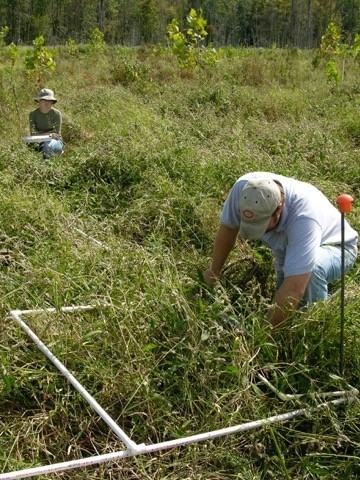
Learn field techniques in flagging, mapping, and establishing wetlands boundaries according to the 1987 USACE Delineation Manual and current Regional supplements. Survey techniques will use GPS equipment and GIS software; and how to identify hydrology, vegetative, and hydric soil indicators will be covered.
Full Course Title: ACOE Wetland Delineation / Regional Supplement for Eastern Mountains and Piedmont / Waters of the United States (WOTUS) Training
Mission: This training will encompass the mandated 1987 Wetland Delineation Manual and Regional Eastern Mountains Piedmont (EMP) & Midwest protocols to train an individual to identify the presence and boundaries of Waters of the United States.
Timeline: 4-day course (30+ hrs). The course will be 1.5 days in the classroom and 2.5 days in the field. Field studies will take place at different locations within the area so that different types of wetlands for delineation can be experienced.
Materials: Provided
Objectives:
Topics:
Reminder: Dress appropriately for the weather and mosquitoes.
Duration: 4 days (30+ hours)
Dates:
Registration Rates:
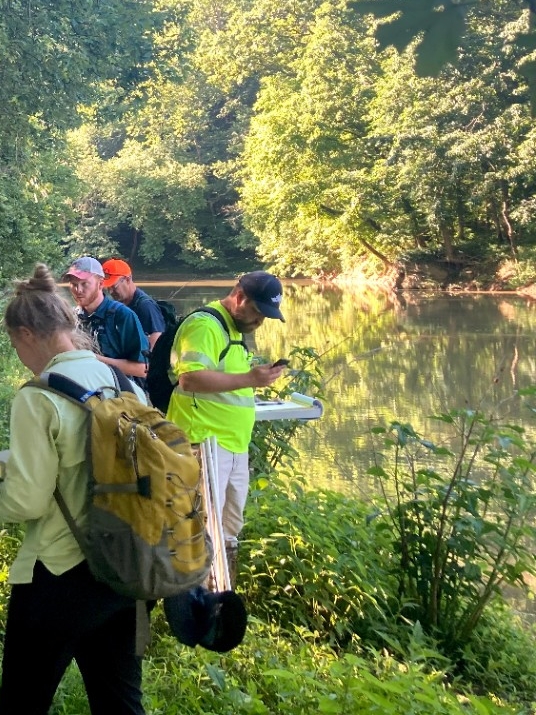
Learn to field identify invasive species. Training on how to properly control and eradicate invasive species for habitat management.
Full Course Title: Wetland Rapid Assessment & Invasives Monitoring
Mission: To gain experience in advanced ecological techniques to monitor projects
that enhance wetlands restoration and removal of invasive plant species.
Timeline: 3-day course (25 hrs)
Materials: Provided
Course Description: From determining baseline conditions to project success, this 3-day course will provide and demonstrate to students of this course applied ecology field techniques for monitoring wetland enhancement and restoration (wetland re-establishment) projects. Class participants will obtain and practice those field techniques utilized to monitor wetland hydrology and vegetation throughout wetland enhancement or restoration projects. Classes will learn how to set up field sampling plots or stations and conduct vegetation and hydrology sampling for monitoring events. Students will acquire and exercise additional knowledge and techniques of wetland plant identification (both native and non-native invasive species), invasive plant species management, as well as refresh their knowledge of identifying and delineating wetlands vs. uplands.
Reminder: Dress appropriately for the weather and mosquitoes.
Duration: 3 days (25 hours)
Dates: August 6-8, 2025
Registration Rates:
